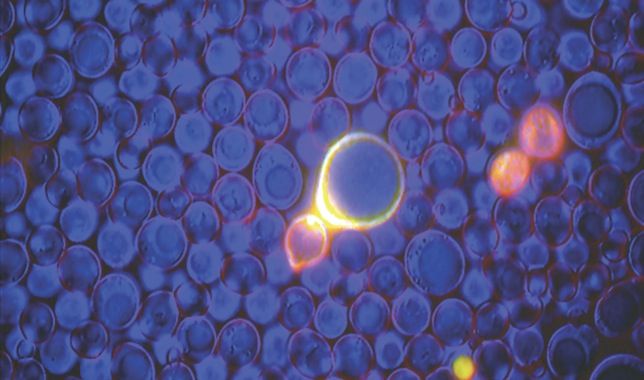New Study: Can Resveratrol Prevent Colon Cancer?
Scientists Hope to Find Effective Preventive Treatment for Common Cancer
2024-11-13

Scientists in the United Kingdom are testing a new drug derived from a compound found in the skin of red grapes to assess its effectiveness in preventing colon cancer. The research aims to find preventive treatments for one of the most common types of cancer. The compound, known as resveratrol, is a potent antioxidant also present in fruits like blueberries and in nuts such as peanuts. Red wine is also a significant source of resveratrol, containing some of the highest doses of the compound.
Colon cancer, or colorectal cancer, ranks as the fourth most common cancer in the United Kingdom. According to data from Cancer Research, the 10-year survival rate for individuals diagnosed between 2013 and 2017 was 53%. The disease predominantly affects people over 75 years old, with statistics from 2017 to 2019 indicating that 43% of diagnoses were in this age group. Colon cancer screenings focus on detecting polyps in the colon or rectum. Although not all polyps become cancerous, some can develop into malignant tumors over time.
Professor Mark Hull, the principal investigator of the Colo-Prevent trial, stated that removing detected polyps does not guarantee they will not recur or turn cancerous later. "Through therapeutic prevention, we are doing everything possible to reduce cancer risk, and the Colo-Prevent trial is one way we are addressing this," Hull explained. The study is led by the University of Leicester and the National Institute for Health and Care Research (NIHR) Leicester Biomedical Research Center, with funding from Cancer Research.
The trial includes 1,300 patients from England and Wales, all aged between 50 and 73, who have had polyps detected and removed. Participants will be assigned to different groups to receive treatments with metformin, aspirin, resveratrol, or a placebo. Those in the aspirin or aspirin-plus-metformin groups will take the medication daily for three years, while those receiving resveratrol or the placebo will take it for one year. Follow-up colonoscopies will determine if the polyps have reappeared.
Previous research by Professor Karen Brown from the University of Leicester investigated how varying doses of resveratrol could inhibit the growth of cancer cells in mice. The results indicated that lower doses were more effective, and the Colo-Prevent trial will test doses of 1mg and 5mg of resveratrol in humans.
The study emphasizes that participants will not consume grapes or red wine. Instead, it focuses exclusively on the effects of resveratrol as a compound. "The best way to prevent colon cancer right now is to improve our lifestyle: quit smoking, maintain a healthy weight, reduce alcohol consumption, and follow a balanced diet," Brown stressed. She added that these lifestyle changes could be enhanced by therapeutic prevention, which uses the growing understanding of cancer biology to develop drugs that can stop the disease at early stages.
Other research has suggested that resveratrol may delay the onset of dementia and that the high flavonoid content in red wine could reduce neurological decline. However, experts emphasize that the benefits of individual compounds should be considered separately from the consumption of certain foods or beverages.
Founded in 2007, Vinetur® is a registered trademark of VGSC S.L. with a long history in the wine industry.
VGSC, S.L. with VAT number B70255591 is a spanish company legally registered in the Commercial Register of the city of Santiago de Compostela, with registration number: Bulletin 181, Reference 356049 in Volume 13, Page 107, Section 6, Sheet 45028, Entry 2.
Email: [email protected]
Headquarters and offices located in Vilagarcia de Arousa, Spain.